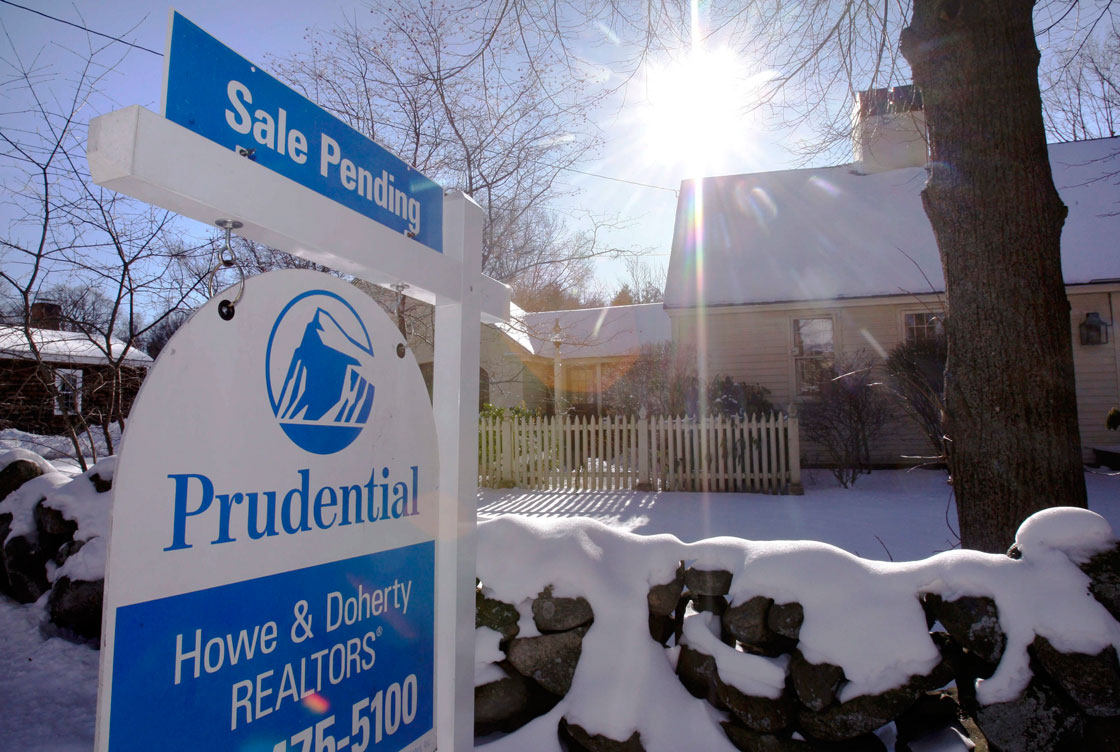The pace of home sales continues to lose steam, according to new figures for January published Friday. But price gains, on the other hand, remain hot.

In all, the number of homes that traded hands in January was 3.3 per cent lower than the same month a year prior, the Canadian Real Estate Association says, marking the fifth consecutive month of declining home sales.
Sales were down the majority of markets, led by declining volumes in the Greater Toronto and Vancouver areas – the country’s two hottest markets – as well as smaller centres in Southern Ontario.
“A number of buyers likely waited out January’s deep freeze before going house hunting, particularly where I’m from in Southern Ontario,” CREA president Laura Leyser said in a release.
READ MORE: January price gains strain affordability in big city markets
Leyser said other markets across the country weren’t as adversely affected by the extreme cold conditions last month.
“It’s a perfect example of how a local influence that may not be shared by other markets can factor into national sales activity,” she said.
BMO economist Doug Porter said sales were generally on the plus side in British Columbia, “which reinforces the point that weather weighed” on the national tally, “since the province largely avoided the worst.”
‘Prices remain surprisingly sturdy’
- ‘Unprofessional’: Couple waits hours at a hospital to see a doctor who wasn’t there
- N.S. mom calls for better ultrasound access after private clinic reveals twins
- As Canada’s tax deadline nears, what happens if you don’t file your return?
- 3 women diagnosed with HIV after ‘vampire facials’ at unlicensed U.S. spa
Price gains however weren’t affected by the frosty conditions, with the non-seasonally adjusted average price leaping a steep 9.5 per cent. The average home price across all housing types is $388,553, CREA said.
“Prices remain surprisingly sturdy,” BMO’s Porter said. But don’t expect price to continue to rise, he cautioned.
“Given the sustained slowdown in sales, we would continue to look for an eventual cool-down in price gains,” he said in a note. “The old rule of thumb is that prices follow sales with about a six-month delay.”
The MLS Home Price Index – which is considered by the industry as a more accurate reading on prices – was up 4.8 per cent compared to prices in January in 2013.
The index “provides a better gauge of price trends because it is not affected by changes in the mix of sales activity the way that average price is,” CREA said.
Price for detached, two-storey homes climbed 5.57 per cent, closely followed by one-storey (bungalow) single family homes, which appreciated nationally by 5.32 per cent. Townhouses rose 3.94 per cent in January, and apartment units were up 3.35 per cent.
Geographically, Calgary saw the biggest price increases, with the index show price gains of 8.98 per cent year on year. The Greater Toronto area saw prices leap 7 per cent.
Greater Vancouver saw average prices rise for the third month in a row, up 3.18 per cent, after more than a year of declines between late 2012 and late 2013.
Price
in Victoria remained lower than year-ago levels in January, declining 1.37 per cent.
Gregory Klump, chief economist for CREA, blamed the fifth straight overall monthly decline in sales volumes squarely on the weather, and more specifically, its impact in Ontario (the country’s most populous province which can skew national averages).
Freezing trempratures “rather than buyers getting cold feet” were to blame.
Klump added: “We’ll be keeping a close eye on February’s numbers for signs of a rebound in Southern Ontario.”



Comments